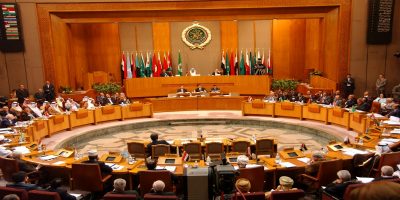By
Anant Mishra
‘Revisiting the 2002 Arab Peace Initiative with special attention given to Clause 2.2 to determine the League’s position on what constitutes a “just solution” as well as to the Arab Spring’s impact on the Peace Plan’s implementation’:
Introduction to the topic
At the centre of the ongoing conflict between the State of Israel and the Palestinians is the question of Palestinian refugees. This issue is considered by many to be one of the most intractable problems in any negotiated peace. The first major wave of refugees came in 1948 during the conflict between the newly founded State of Israel and its Arab neighbours – approximately 700,000 people. Today, the community of 1948 refugees, including their descendants, number over five million and are the primary cause of the United Nations Relief and Works Agency for Palestinian Refugees in the Near East (UNRWA). Further waves of refugees were displaced in successive wars, particularly in the 1967 Six-Day War.
Palestinian refugees today are scattered throughout the world, many still living in what are now permanent camps in Lebanon, Syria, Jordan, and the Palestinian territories of the West Bank and Gaza Strip. The Palestinians, though divided along partisan lines on the exact details, claim that refugees should have the right to return to their homes or be compensated for their losses. Israel, however, refuses to permit the return and naturalization of Arab Palestinian refugees or their descendents.
The United Nations has passed a number of non-binding resolutions on the issue, most notably General Assembly Resolution 194, which states “that the refugees wishing to return to their homes and live at peace with their neighbours should be permitted to do so at the earliest practicable date” or otherwise be compensated for their loss. Nevertheless, the exact meaning of this resolution has been disputed since it passed in 1948. The Arab League has consistently backed the Palestinians in their position on refugees’ right to return. In fact, the Palestinian cause as a whole became somewhat of a raison d’être for the organization for many years. However, Arab countries have denied citizenship and economic participation to large numbers of Palestinian refugees with the stated goal of maintaining pressure on Israel – they claim that the refugee issue will be solved when Israel allows a Palestinian state.
Nevertheless, as the Arab League has evolved, so have the nuances of its position on refugees. This topic seeks to further refine that position in light of the current geopolitical situation and developments within the organization.
History of Topic in the Arab World
At its 2002 Beirut summit, the Arab League adopted the Saudi-authored Arab Peace Initiative, a plan designed to offer Israel peace with its Arab neighbours in exchange for certain conditions regarding the Palestinians. This plan calls upon Israel in Clause 2.2 (or sometimes labelled Clause 2.b.) to affirm the “achievement of a just solution to the Palestinian Refugee problem to be agreed upon in accordance with UN General Assembly Resolution 194.” In addition, the Arab Peace Initiative asks for the withdrawal of Israeli presence from the entirety of the Palestinian Territories and acceptance of a sovereign Palestinian state within the 1967 borders with East Jerusalem as its capital as conditions for peace with the Arab world.
Since 2002, Israel has not accepted the terms stipulated in the Arab Peace Initiative, though it ostensibly still stands as an offer. The Arab League reaffirmed the initiative at its 2007 summit in Riyadh. Nevertheless, the phrase “just solution” in Clause 2.2 remains vague and undefined. And because, as stated, the meaning of UNGA Resolution 194 is disputed, a “just solution” could mean any number of practical applications. Furthermore, the topic names the Arab Spring as a reason to revaluate the Arab Peace Initiative’s implementation. The Arab Spring is the commonly recognized name for the collection of uprisings and protest movements which washed across the Arab world beginning in December 2010 in Tunisia and continuing today. During the course of these events, the Arab League has redefined itself and its role according to some analysts.
Widely considered for many years an impotent organisation in the face of crisis, the Arab League has taken dramatic steps since the Arab Spring began. For example, the League backed a NATO-enforced no-fly zone over Libya during the country’s civil war. That decision, though later softened, gave enough cover for anti-government Libyans to topple their long-time dictator Muammar Al-Qaddafi and take the first steps toward representative democracy. More recently, the League authorized sanctions against Syria in response to the conflict there and strongly backed Palestine in its quest for full UN recognition.
Finding a Solution to the Problem: Past, Present, and Future
As mentioned above, article 2.2 of the 2002 Arab Peace Initiative mandates a just solution to the refugee problem. However, given the current treatment of Palestinians in both the Territories under Israeli control and in other Arab countries, justice remains elusive in any past or current proposed solution. This is complicated by Article 4 of the Peace Initiative, which “assures the rejection of all forms of Palestinian partition, which conflict with the special circumstances of the Arab host countries.”Prior to the 2002 Arab Peace Initiative, the refugee problem proved to be contentious. A number of UN General Assembly and Security Council resolutions had addressed the topic to no avail. The Oslo Accords of 1993 laid out a framework for an eventual solution to the refugee problem in negotiations between the Palestinian Liberation Organization and Israel. However, the refugee problem was never fully discussed before negotiations broke down in 2000.
Linked article: ‘Advancing the progress of Arab League Nations in reaching the Millennium Development Goal to achieve universal primary education’ by Anant Mishra, Tuck Magazine 30th October 2014



No Comments Yet!
You can be first to comment this post!